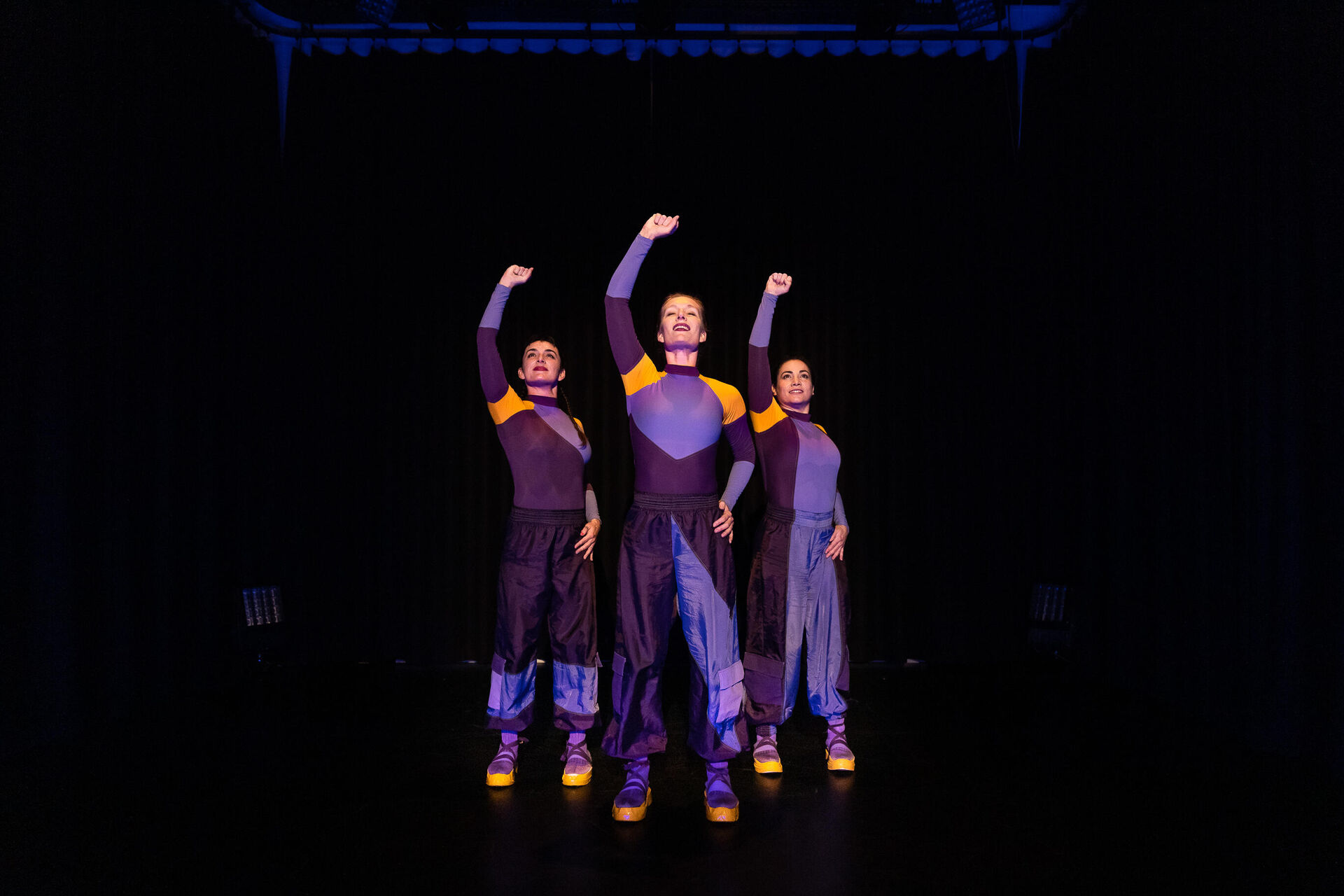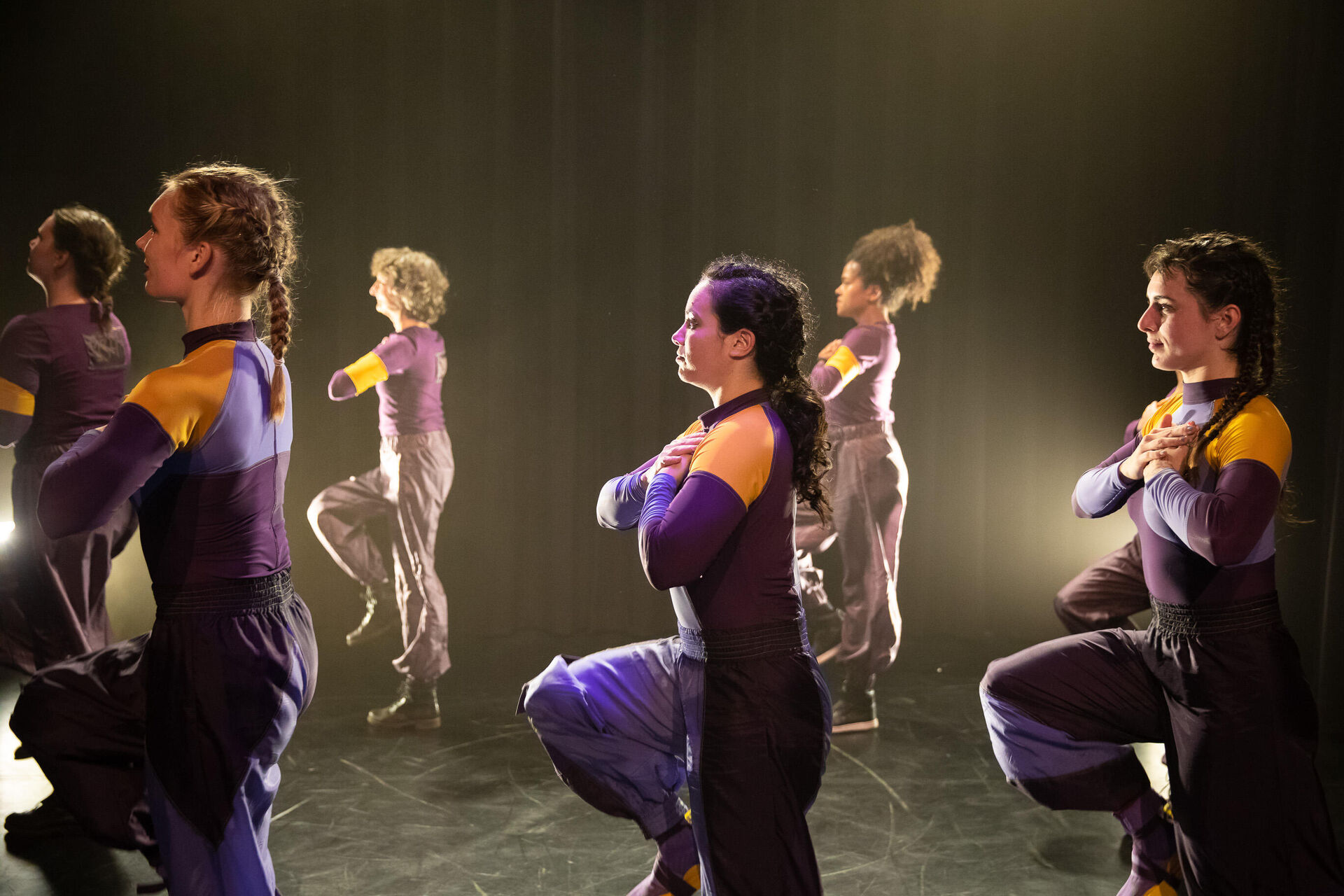Sandra is from Slovakia and has been living in Amsterdam for about five years. She started dancing when she was only four years old and enjoyed making choreographies with her sister and then performing them for their parents and friends. This did not stop there. Sandra studied choreography at the Academy of performing arts in Bratislava, Slovakia.
STUdance in conversation with Sandra Kamerová
In the performance ‘Dictatorship of Love’ Sandra tries to show the moral dilemma between when we are free and when we are not. The topics of oppression and the position of women in society take center stage. This performance is scheduled on Saturday 21 and Sunday 22 January in Theater Kikker; members of STUdance will dance along with the professional dancers on both evenings. Beforehand, members of the association talked with the choreographer. They were curious about her background and the thoughts behind this dance performance.
At a major modern dance festival in Bratislava (Bratislava v pohybe), she was inspired by a performance by a dance company from Israel, called Kibbutz Comtemporary Dance Company, and knew she wanted to do something similar. She auditioned and even got to work and study with this company with an international dance program. In New York, she was able to continue her studies at one of the largest dance schools, first Peridance, then Sarah Lawrence College.

In New York, her life as a choreographer really began. She made her first shows here. In New York, it is however very difficult to make ends meet as an artist. So she came to Amsterdam and there she continued making dance projects. Now she is increasingly reflecting on her own background and how to incorporate it into her choreographies. Only when she left Slovakia did she realize that things are different in other places in the world. According to her, in times of socialism, there used to be a glorification of sports and physical skill in Slovakia in order to compete with the prosperous West. Therefore, her show is about the position of women in society, what it means to use your body and on the other hand what you represent if you are not completely free. It is about authority and the individual.
Sandra is much concerned with how things may not seem oppressive at first, but end up being oppressive, especially in this day and age. According to her, in social behavior there is always the question of whether people are happy to do something or whether they are actually forced to do it. So in a way, the performance is also about freedom. During the performance, certain lights and sounds will show whether a gesture is approved or disapproved.
If a dancer then makes a mistake, she will be disapproved. She says she discussed with the dancers whether they would move away from this system if they could. The dancers' response was that they did not want to, because they do not want to leave the others behind. Thus, Sandra wants to show that the concept of freedom is not so simple. Sometimes you choose to stay somewhere because it actually means more freedom than if you were to leave.

At the end of the performance, Sandra will have volunteers dance with her on stage. In different cities she will have other volunteers participate and in Utrecht this will include some members of STUdance. According to Sandra, the volunteers add the aspect of humanity, the differences in strength between two worlds. First you look at the professional dancers who have been drilled and trained for years and then come the female volunteers who are still at the beginning of their apprenticeship.
You will see them in a kind of audition environment. They will have to present themselves, which will also take real courage. Despite the different groups of people in different cities, Sandra says the ending was super powerful every time. She is looking forward to seeing what will come out of it in Utrecht.
So in ‘Dictatorship of Love’ there is quite a journey. From oppression to rebellion to the grand finale where everyone dances together. The big question in this, according to Sandra, is whether the dancers are really happy to be doing this. They are going through something tough, but for what? Is it worth the pain and effort? The ending seems positive, but there is a deeper layer of oppression underneath. She would like the audience to start thinking about what they themselves would do in this situation.
Dictatorship of Love can be visited on Saturday 21 and Sundag 22 Januari.
